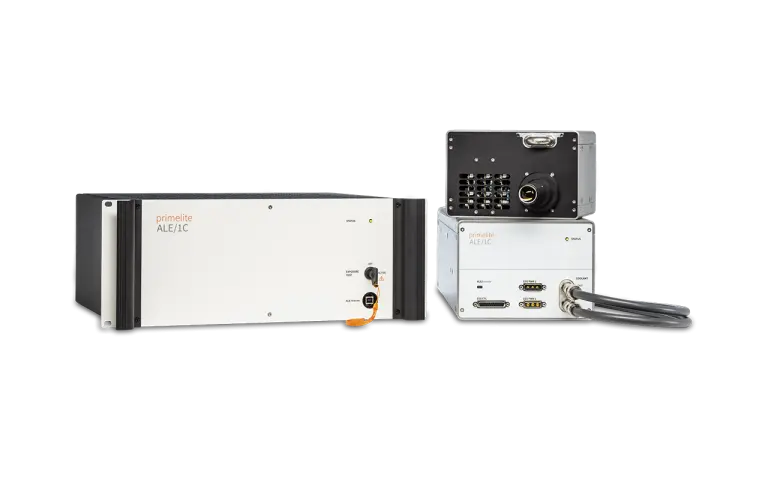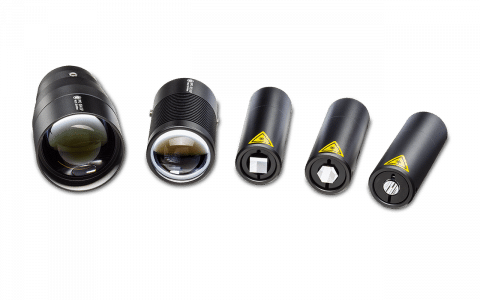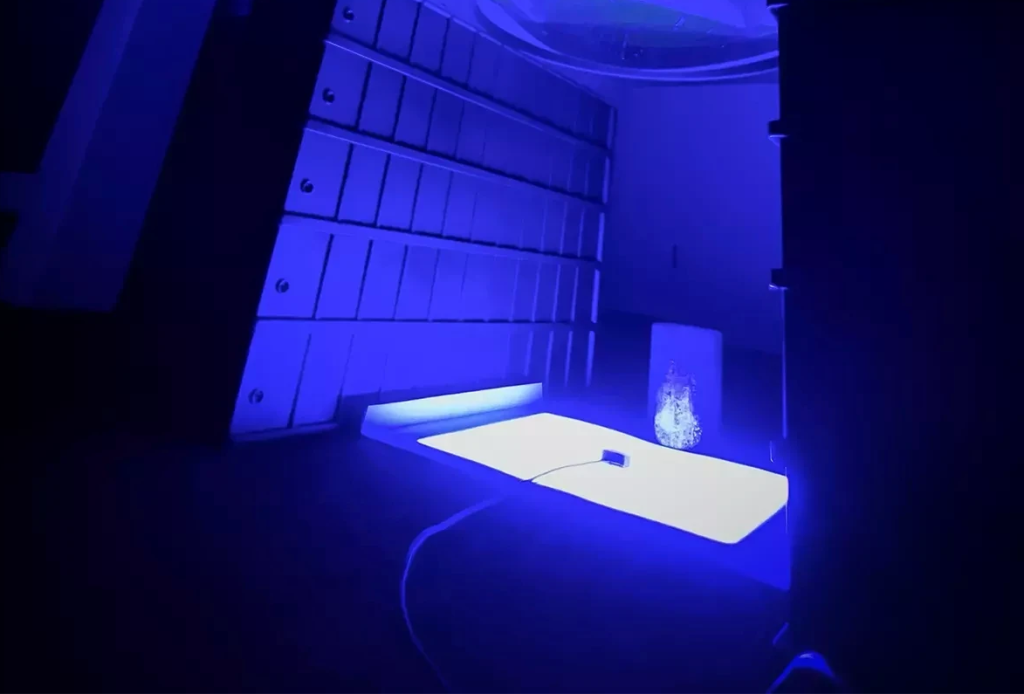- Home
- Technical Products
Enterprise Cloud IT Solutions
Test Measurement
Industrial Measurement
- Solutions
Enterprise Cloud IT Solutions
Test Measurement
- Latest Articles
- About Us
 EN
EN
Advanced UVLED Exposure System

ALE/1C - UV-LED Exposure System
Product Advantages and Features
- Built-in for maximum efficiency and performance
- Closed loop control output
- LED Process Stability and TCO Advantages
- Mercury-free design for a sustainable future
- Broadband exposure up to 50 W (UV-LED 350-450 nm)
Output performance for replacing high power mercury lamps
Our standard ALE/1C setup combines UV-LED emitters with peak wavelengths near the i-line (365 nm), h-line (405 nm) and g-line (436 nm) of the mercury spectrum. All UV-LED emitters can be controlled individually, so you can switch wavelengths and customize the composition of the output spectrum without changing filters.
The total output power of the HONGKE ALE/1C is as high as 40 W In addition, when an external cooler is added to the cooling circuit, the output power can be as high as 50 WIt is a complete replacement for high power discharge mercury lamps.
Spectrum

Angular distribution (from light pipes)

power (output)
| Radiation [mW] 1 | optics | Broadband (350 - 450 nm) | i-line (365 nm) |
|---|---|---|---|
| ALE/1C (performance mode) | Ø8.0 mm hex AR | 50,000 | 21,000 |
| ALE/1C (standardized mode) | Ø8.0 mm hex AR | 40,000 | 17,000 |
1Deviation may be ±10%
ALE/1C UV-LED Exposure System Overview
The ALE/1C unit is decentralized for easy system integration. Our small UV-LED Exposure Subsystem (ESS) is located directly in the light path of your device, where designing the network would normally pose a challenge. You can place our separate Control Subsystem (CSS), which manages power and cooling for the entire setup, in a more convenient location with fewer space constraints. And feel free to combine the ALE/1C Exposure System's optical outlets with a variety of light pipes, light guides and other optical components.
Control Subsystem (CSS)
There are two versions of the CSS, one with a very small footprint and the other with a 4U footprint in a 19″ rack, both with the same control interface, cooling system connector and system status indicator. The rack-mounted version also has an exposure test pushbutton switch on the front panel that activates the light output without the need for an external control signal.

Exposure Subsystem (ESS)
The ALE/1C UV-LED Exposure Subsystem is a fluorescent tube coupled point light source. Our UV-LED light engine is connected to a separate control subsystem (CSS) with your choice of optical components, providing all the hardware and software needed to control and drive the internal UV-LED emitters.The compact design of the UV-LED Exposure Subsystem makes integration so simple that it can be used either as a retrofit to your current equipment or as part of a new tool.
All LED modules are field replaceable. Replacing LEDs takes only a few minutes and requires no special tools.

Lighting Options and Optical Elements
Avision offers a wide range of ALE/1C exposure light sources that can be used in conjunction with the ALE/1C exposure light source.Flexible liquid light guides, light pipes, homogenizers, and concentrating optics.
These components are especially useful if you need to transmit high power radiation over long distances, improve uniformity, or want to adjust the right angle of the output radiation. Check out ourOptical Optimization ComponentsPage for more information

Homogenized concentrating elements

Customized Large Area Optics
System Parameters and Specifications
ALE/1C Exposure light sources can be combined up to3 UV-LED emittersThe
Optional spectral composition
→ near-ultraviolet (NUV)(365, 385, 405, 435 nm)
→ visible light(470, 520, 620, 660, 690 nm)
→ NIR (730, 770, 810, 850, 970 nm)
| Output Sources | Up to 3 LEDS combinations, 365 ~ 970 NM outputs |
|---|---|
| Total radiation output* | Up to 40 W (50 W with additional cooling) |
| Luminous intensity | Up to 100,000 mW/cm2 |
| Numerical Aperture | Variable, depending on the concentrating element |
| control configuration | Independent LED power management and presets Precision Strength Adjustment (20-100%) LED rise time approx. 1 ms Continuous monitoring of optical output and feedback control via internal or external signals |
| interactive interface | USB: ALE/remote (ALE PC software) PLC: Discrete Interface Field bus: according to customer requirements (e.g. CANopen) |
| Temperature Control | Internal Liquid Cooling External cooling (optional) for increased output |
| Size (WHD) | ESS: 20 cm X 13 cm X 20.5 cm (7.9″ X 5.1″ X 8.1″) CSS: 20 cm X 15 cm X 45 cm (7.9″ X 5.9″ X 17.7″) CSS (Rack): 44 cm X 18 cm X 37 cm (17.3″ X 7.1″ X 14.6″) |
| weights | ESS: 5 kg (11 lbs) CSS: 9 kg (20 lbs) CSS (Rack): 10 kg (22 lbs) |
| Power Input | 110-240 VAC / 50-60 Hz / 1,000 W |
| light-emitting diode (LED) (Tw) | Hexagonal and round light pipes (Ø6.5 mm and Ø8.0 mm) Customized Spotlights or Focusing Optical Elements |
| * :: Full spectrum measured at the end of the light pipe (Ø8.0 mm, hexagonal transmittance-enhancing film); deviation ±10% | |

